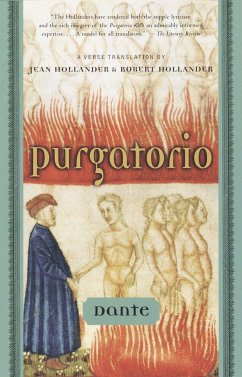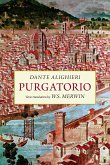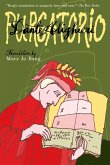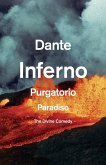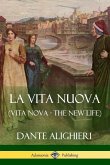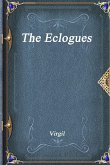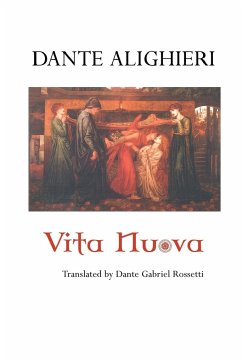Jean Hollander, an accomplished poet, and Robert Hollander, a renowned scholar and master teacher, whose joint translation of the Inferno was acclaimed as a new standard in English, bring their respective gifts to Purgatorio in an arresting and clear verse translation. Featuring the original Italian text opposite the translation, their edition offers an extensive and accessible introduction as well as generous historical and interpretive commentaries that draw on centuries of scholarship and Robert Hollander's own decades of teaching and reasearch. In the second book of Dante's epic poem The Divine Comedy, Dante has left hell and begins the ascent of the mount of purgatory. Just as hell had its circles, purgatory, situated at the threshold of heaven, has its terraces, each representing one of the seven mortal sins. With Virgil again as his guide, Dante climbs the mountain; the poet shows us, on its slopes, those whose lives were variously governed by pride, envy, wrath, sloth, avarice, gluttony, and lust. As he witnesses the penance required on each successive terrace, Dante often feels the smart of his own sins. His reward will be a walk through the garden of Eden, perhaps the most remarkable invention in the history of literature.
Hinweis: Dieser Artikel kann nur an eine deutsche Lieferadresse ausgeliefert werden.
Hinweis: Dieser Artikel kann nur an eine deutsche Lieferadresse ausgeliefert werden.
"There is nothing middle-of-the-road about D. M. Black s version of the middle book of Dante s Divine Comedy. The translator s every step is sure, evincing not only his sensitive ear for the cadences of blank verse but also his profound insight into the psychology of the poet as well as of his shades. Black shows great respect for Dante as both a craftsman and a thinker, and in so doing serves the reader as a uniquely competent guide to 'that Mountain where the blade of Reason probes us.'" National Translation Award in Poetry Shortlist
A great work of art like The Divine Comedy carries in it what readers in successive generations feel to be its modernity : what it says to us, now. David Black, a poet and psychoanalyst, by his translation, introduction, and notes, helps us into that enormous benefit. He enables Dante into our present lives. David Constantine
David Black s Purgatorio offers fresh insight into Dante s poetry. We encounter a Dante whose psychological acumen is surprisingly relevant to us today. We are invited to read the Purgatorio as a journey of discovery: Dante s discovery of his gifts and limitations; and through that, our discovery of resources that can help us address some of the pressing challenges of our time. Vittorio Montemaggi
David Black s translation of the Purgatorio unites psychological insight and intuitive understanding with scholarship and love of language. Ronald Britton
[Dante s] art and its truths feel more necessary than ever: that greater love for others is an antidote to the world s barbarities, that evil may be understood as a sin against love, and that a soul can t hope to dispel its anguish without first plumbing it. . . . D.M. Black s Purgatory is the most satisfying since [W.S.] Merwin s. . . [A] thoughtful rendering. Judith Thurman, The New Yorker
The Inferno has long been more widely read than the Purgatorio. . . The Purgatorio, however, is a more satisfying whole. The structure is more meaningful, the verbal music more delicate and, above all, it is more human. . . . Both in this translation and in his afterword, [D.M.] Black shows us why Dante matters, and how, 700 years after his death, he can still help us to understand what may give meaning to our own lives. Robert Chandler, Financial Times
People who haven t read Dante will find D. M. Black s translation of Purgatorio a revelation. Those who know the Commedia already will find it a valuable addition to established versions. . . What s immediately obvious is how much more propulsive Black s version is. His syntax doesn t pause at line endings, it catapults us over them. Edmund Prestwich, London Grip
Black s translation is well worth reading for its beauties as well as its fidelity to Dante s text and intentions. It joins the array of worthy Purgatorio translations, which is more than making up for the first five hundred years of little or nothing to choose from. Andrew Frisardi, Plough Quarterly
A great work of art like The Divine Comedy carries in it what readers in successive generations feel to be its modernity : what it says to us, now. David Black, a poet and psychoanalyst, by his translation, introduction, and notes, helps us into that enormous benefit. He enables Dante into our present lives. David Constantine
David Black s Purgatorio offers fresh insight into Dante s poetry. We encounter a Dante whose psychological acumen is surprisingly relevant to us today. We are invited to read the Purgatorio as a journey of discovery: Dante s discovery of his gifts and limitations; and through that, our discovery of resources that can help us address some of the pressing challenges of our time. Vittorio Montemaggi
David Black s translation of the Purgatorio unites psychological insight and intuitive understanding with scholarship and love of language. Ronald Britton
[Dante s] art and its truths feel more necessary than ever: that greater love for others is an antidote to the world s barbarities, that evil may be understood as a sin against love, and that a soul can t hope to dispel its anguish without first plumbing it. . . . D.M. Black s Purgatory is the most satisfying since [W.S.] Merwin s. . . [A] thoughtful rendering. Judith Thurman, The New Yorker
The Inferno has long been more widely read than the Purgatorio. . . The Purgatorio, however, is a more satisfying whole. The structure is more meaningful, the verbal music more delicate and, above all, it is more human. . . . Both in this translation and in his afterword, [D.M.] Black shows us why Dante matters, and how, 700 years after his death, he can still help us to understand what may give meaning to our own lives. Robert Chandler, Financial Times
People who haven t read Dante will find D. M. Black s translation of Purgatorio a revelation. Those who know the Commedia already will find it a valuable addition to established versions. . . What s immediately obvious is how much more propulsive Black s version is. His syntax doesn t pause at line endings, it catapults us over them. Edmund Prestwich, London Grip
Black s translation is well worth reading for its beauties as well as its fidelity to Dante s text and intentions. It joins the array of worthy Purgatorio translations, which is more than making up for the first five hundred years of little or nothing to choose from. Andrew Frisardi, Plough Quarterly

